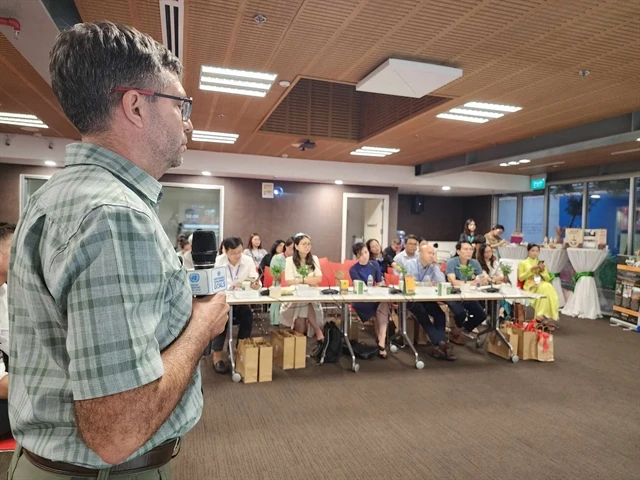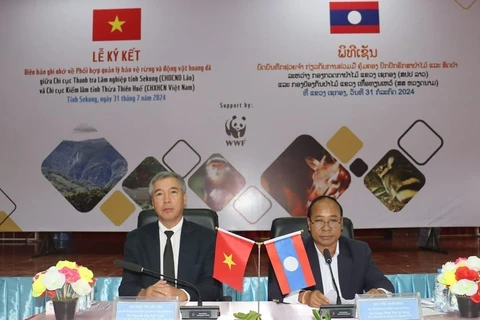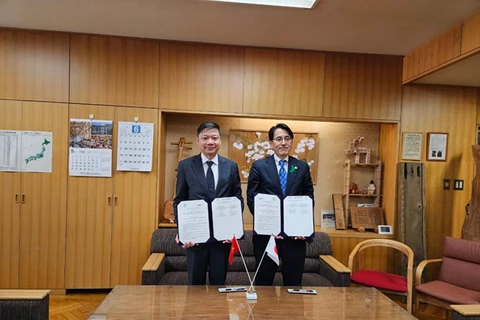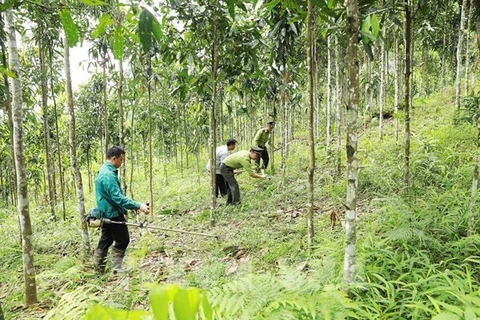
Hanoi (VNS/VNA) - Vietnam has increased forest coverage from 23% in 1994 to more than 45% today, demonstrating a remarkable commitment to forestation, according to Alexis Corblin, Regional Technical Advisor of the United Nations Environment Programme (UNEP).
Corblin was speaking at October 1's workshop on the Forest Ecopreneur 2024 programme, which is part of the SAFE Initiative funded by the Korea Forest Services and implemented by UNEP, Bridge for Billions, and the Research Institute for Innovation and Development (IID).
He said Vietnam was leading the way as the first country to host the Demo Day workshop for the first incubation cycle under the SAFE Initiative, whose objective is to conserve and restore forest ecosystems in Bhutan, Laos, Cambodia and Vietnam.
"Vietnam has always been at the forefront of the initiative since its beginning," said Corblin.
Truong Thi Nam Thang, Lead Researcher at IID, said 35 businesses had been selected from a pool of applicants to participate in the Forest Ecopreneur 2024.
Between May and September 2024, the programme engaged them in diverse capability-building activities, including four online training modules, three networking events, and a field trip to Kon Tum province, to support their growth.
"They have also been profiled on the imapvietnam - an interactive digital map of Vietnam's SIB sector - and the Catalyst 2030 global network," said Thang.
The programme culminated in the Demo Day workshop where seven of the 35 businesses were shortlisted for a pitch competition. The Innovative Foods Technology Company was awarded first place, followed by An Xuan Organic Herb CO LTD in second place and Goong Local Knowledge Cooperative in third place.
Third prize-winning Chao Thi Yen told Viet Nam News that her cooperative, which produces agricultural commodities, aims to create social and environmental impact by planting 10ha of forest and reduce poverty rates in the local community from 85% to 45% in the next three years.
"Our primary objectives are two of the Sustainable Development Goals: life on land and no poverty," said Yen.
She said her cooperative aims to achieve the dual goals by planting high-value species such as macadamia and intercropping them with medicinal herbs.
She also underlined the problem of product misrepresentation, where some sellers falsely label their products as local, diluting the brand equity of genuine local products.
IID Lead Researcher Thang told Viet Nam News that the programme is open to forest-linked small and medium-sized businesses in the initial phase of their start-up.
She said more than half of the programme's businesses are women-owned and nearly all of them are either founded or run by entrepreneurs with ethnic minorities background.
"The programme also contributes to the preservation of cultural heritage by incorporating products crafted by ethnic minorities," said Thang./.






















